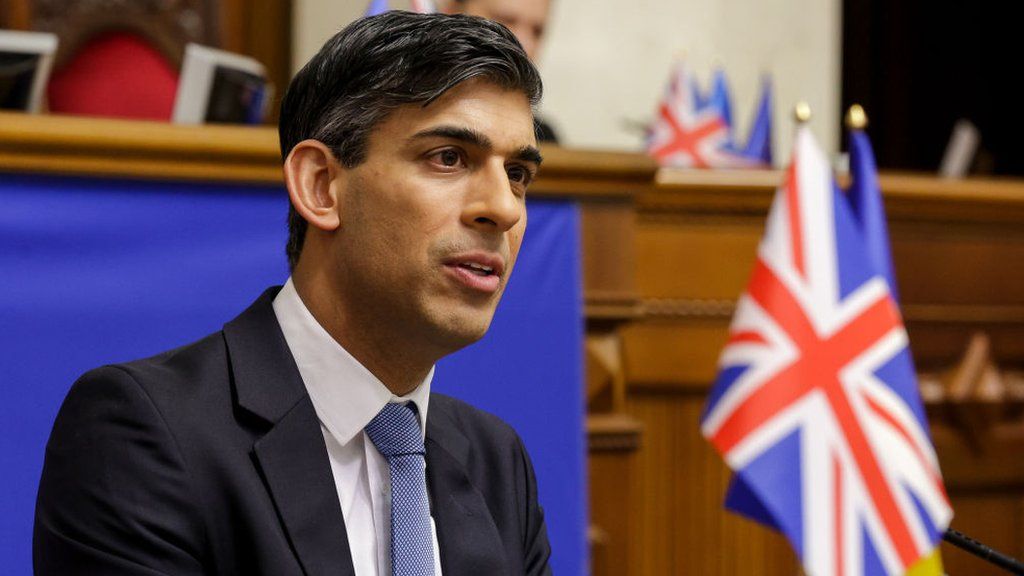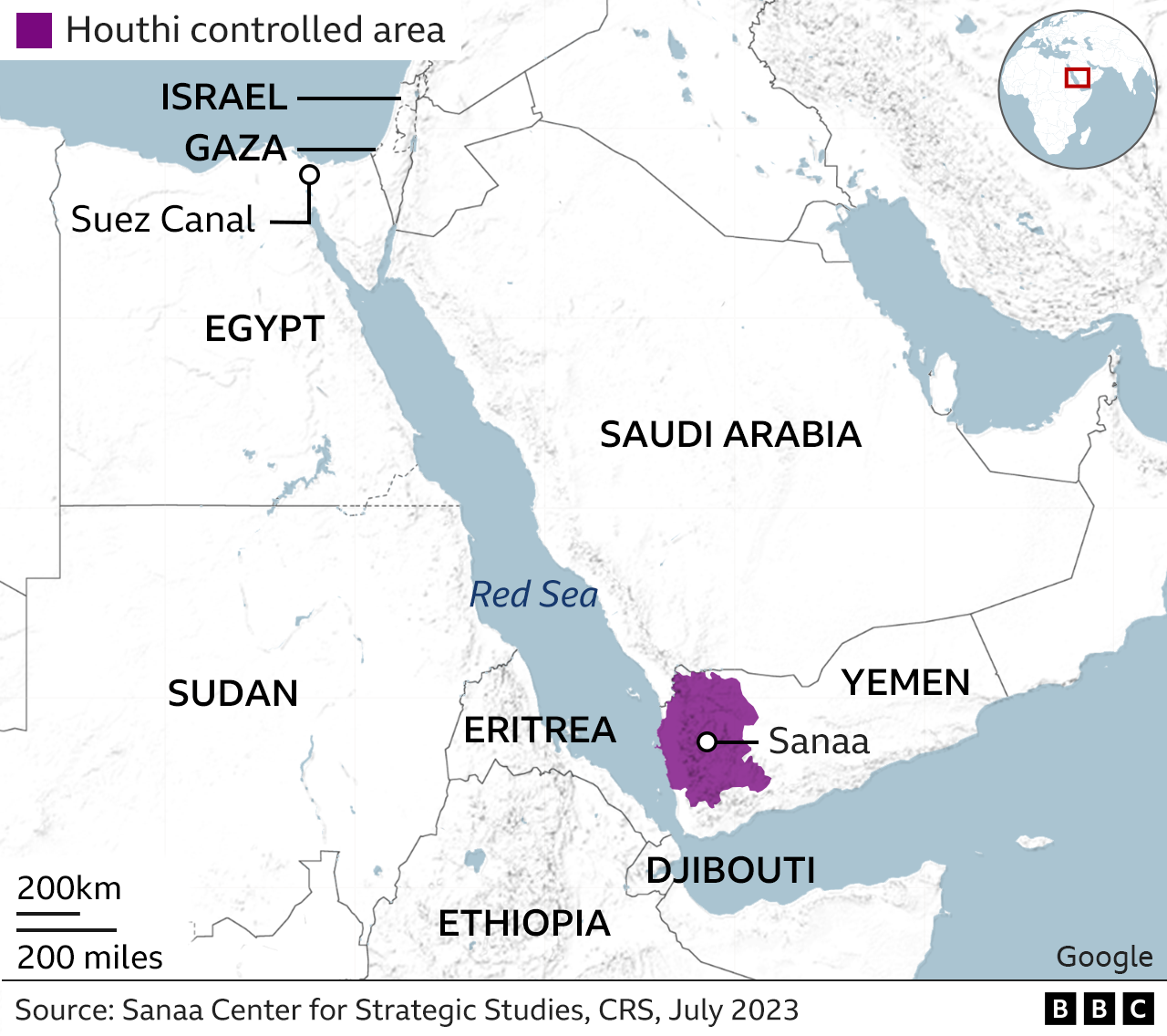The defence secretary also warns the UK will consider more strikes if the Houthis do not stop attacking ships.
 Image source, Getty Images
Image source, Getty ImagesRishi Sunak is to address MPs later for the first time since the UK joined US strikes on Houthi targets in Yemen.
The government will “look again” at further strikes against the armed group if attacks on vessels in the Red Sea do not stop, Defence Secretary Grant Shapps told BBC News.
But Mr Shapps said the UK had “no interest in entering some extended approach in the Red Sea”.
“We simply want international shipping to be able to run.”
Asked if there would be further strikes, the defence secretary told BBC Breakfast: “Of course, if the Houthis don’t stop, we will have to look at this again.
“We very much hope they will take a lesson from this and stop harassing shipping.”
He also defended the government’s decision to strike the Houthis without a debate or vote in parliament first.
The prime minister prompted criticism from some opposition after authorising the strikes – which he described as “self-defence” – without consulting MPs.
Mr Shapps said: “It would have provided perhaps too much information and detail to the Houthis.
“So we needed to act. In fact, we did that with quite a lot of consultation with parliament. With the Speaker, with the leader of the opposition and others.”
Calling the strikes, which targeted 16 Houthi rebel sites, “discrete proportionate action”, he said he hoped it sent a “a very clear message that you can’t have thugs disrupting international shipping in that way”.
He added that strikes were also designed to send a message to Iran, who he accused of training and equipping the Houthis – a military and political group who control the north of Yemen and its capital Sanaa.
He also rejected the Houthi’s assertion that they were only attacking ships linked to Israel, explaining 50 different nations have had their ships attacked.
Following the strikes, the US said it shot down a missile fired at one of its warships from a Houthi area of Yemen on Sunday, with no injuries reported.
The group’s attacks on cargo ships – some of which have no clear connection to Israel – have led major shipping companies to divert vessels away from the Red Sea, instead taking a longer route around southern Africa.
Mr Sunak is due to deliver his statement about the strikes, which targeted Houthi command, storage, and launch facilities, in the House of Commons this afternoon.
This is the first time Mr Sunak has decided to take part in military action since becoming prime minister in October 2022, making the statement a significant political milestone for him.
He is likely to face questions today about whether the UK will take part in further strikes and what plans the government has to avoid a broader regional conflict.
Conservative MPs have generally been supportive of Mr Sunak’s decision over the weekend.
Labour leader Sir Keir Starmer, who was briefed ahead of the strikes, also said he supported the action and called for a debate in Parliament.
“National security must come first,” he told Sunday with Laura Kuenssberg programme. “There will always be urgent situations where Parliament can’t be consulted beforehand.”
But Liberal Democrat foreign affairs spokeswoman Layla Moran said Parliament had a “right to debate and vote on military action”, and former Labour leader Jeremy Corbyn said it was “utterly disgraceful that Parliament has not even been consulted”.
The government is not legally required to seek parliamentary approval before taking military action. However, a convention has been established in recent years under which the Commons is – in most circumstances – given the opportunity to debate the deployment of military forces in advance.
Talking about the criticism, Foreign Secretary Lord Cameron told Sunday with Laura Kuenssberg: “I don’t think it would have been right to have a debate and a vote before this sort of action, because I think it is important for reasons of operational security to, on this occasion, take the action and then have a statement in Parliament afterwards.”
Where is Yemen and where did the air strikes happen?



Sign up for our morning newsletter and get BBC News in your inbox.
